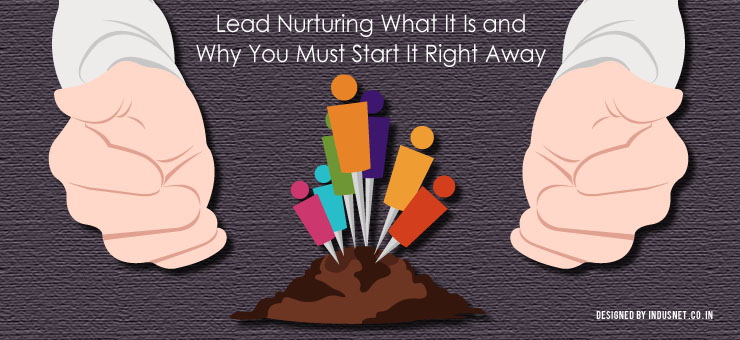
Lead generation is one of the most misunderstood parts of marketing. It assumes that everyone in the database of a company’s leads will end up buying a product if they seem interested. If they resist being contacted or do not respond favorably, then it is assumed that the leads are no more leads and are, usually, removed from the list.
Companies also expect leads to engage with them enthusiastically, an expectation that is thoroughly unrealistic. It costs a lot of money to engage with leads and even to get them to part with their contact details. Yet, companies make the mistake of ignoring them when they do not see any enthusiasm.
What is lead nurturing and what are its benefits?
Lead nurturing is the process of building relationships with potential customers, without expecting them to purchase anything at that moment. Just like in any relationship the word “marriage” puts off many men and women, the word “purchase” puts off leads. Leads will never be ready to purchase when you expect them to make purchases.
Studies show that more than 70% of leads either buy a product from you or your competitor once they visit your website. The trick is to make sure that leads do not feel coerced or forced into buying something, as that will only encourage them to ask you to take them off your list. Instead, build relationships just like you would, with potential dates.
Engage with them slowly but surely appearing in their lives once in a while, never being intrusive or invasive. This process of building healthy non-committal relationships with leads is called as lead nurturing; and it works very well.
Customers have changed the way they look at products and services
Customers have changed the way they make purchases. There was a time when they depended on advertisements in newspapers or TV to discover new products. If they fancied an advertisement, they probably bought the product as well. Persuading people to purchase is no longer that simple or easy. Most people spend a lot of time browsing the internet to discover various products and they might also look up reviews to see how your products or services fare.
B2B buying process has changed even more, making businesses that sell services and products to wholly rely upon recommendations & good reviews. Companies just do not take risks anymore, by hiring people that they do not know. With that in mind, the trick is to remain in the sub-conscious of your leads when they want a product or service.
Lurk around in your leads’ collective consciousness
The idea is to make sure that you are around and that you are associated with a certain product or service & that you are also probably good at what you do; and when need arises, they need to be able to contact you within no time. Such sort of subliminal presence can only be achieved through lead nurturing.
They need to know that you have got their backs, in terms of providing the best services and products. For that, lead generation mechanisms are not enough. You need to spend time to nurture your leads. Nurturing your leads can only happen when you put in effort to build relationships, instead of looking at your leads as customers.
By regularly talking about issues that concern your industry, by providing information about your area of expertise and by engaging your leads in conversations on social media, you will be able to create a sort of relationship that is not possible with conventional advertising. Lead nurturing is, thus, one of the most important aspects of marketing and it can take you a long way.
What you need to avoid while engaging in lead nurturing?
A DemandGen report recently noted that nurtured leads increase sales opportunities by 20% when compared with leads that are not nurtured. This being said, lead generation does not mean you need to send them unwanted e-mail newsletters, make unwelcome calls or write content that is solely about your own products and services. Building healthy relationships takes extra effort and that includes understanding what your leads want & then build healthy relationships with them.